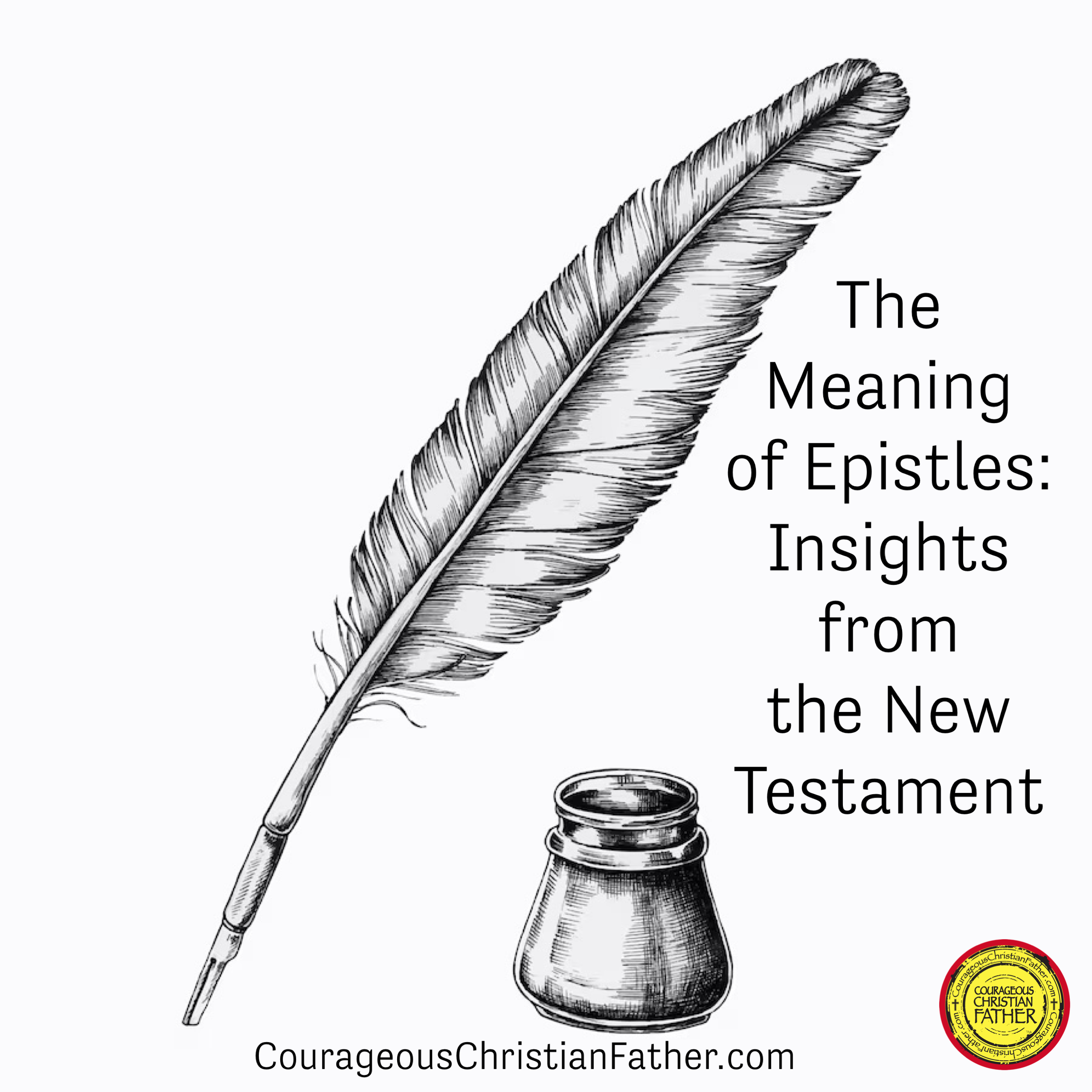The Meaning of Epistles: Insights from the New Testament – Epistles, also known as letters, form a significant part of the New Testament. Written by early Christian leaders, these epistles provide timeless wisdom, guidance, and encouragement to believers. Beyond their historical context, they hold profound meaning that resonates with Christians even today. In this blog post, we will explore the deeper significance of the epistles and their relevance to our lives as followers of Christ. #bgbg2
The Meaning of Epistles: Insights from the New Testament

Personal Connection:
Epistles establish a personal connection between the authors and recipients. They were written to specific individuals or communities, addressing their unique challenges, needs, and spiritual growth. This personalized approach reminds us that our faith is not a solitary journey; it is meant to be lived in community. Just as the early Christians were supported and guided through the epistles, we can find comfort and direction in these timeless letters.
Doctrinal Teachings:
Epistles also serve as doctrinal teachings, providing foundational truths and theological insights. They expound on the person of Jesus Christ, salvation, grace, the Holy Spirit, and the Christian life. Through epistles, we gain a deeper understanding of our faith and are equipped to defend it. They offer clarity amidst confusion, answering questions that believers may encounter along their spiritual path.
Practical Application:
The epistles not only impart knowledge but also offer practical application for Christian living. They provide guidance on moral conduct, relationships, forgiveness, love, humility, and service. By studying these letters, we learn how to apply biblical principles to our daily lives, leading to transformed attitudes and actions. Epistles bridge the gap between theology and practice, reminding us that our faith should be lived out in practical ways.
Encouragement and Exhortation:
Many of the epistles were written during times of adversity, persecution, and spiritual challenges. Consequently, they contain words of encouragement, exhortation, and hope. The authors often shared their own experiences, emphasizing the faithfulness of God in difficult circumstances. By reading these epistles, we find strength and inspiration to persevere through our own trials, knowing that we are not alone.
Communal Relevance:
While the epistles were originally written for specific communities, they possess communal relevance that extends beyond their immediate context. The challenges faced by the early church mirror the struggles we encounter in our modern world. The epistles address issues such as unity, false teachings, division, and spiritual growth, which remain relevant to the Church today. They remind us that the body of Christ is timeless, united in purpose, and called to uphold the truth.
List of the Epistles:
The New Testament contains a total of 21 epistles, which are as follows:
Pauline Epistles:
- Romans
- 1 Corinthians
- 2 Corinthians
- Galatians
- Ephesians
- Philippians
- Colossians
- 1 Thessalonians
- 2 Thessalonians
- 1 Timothy
- 2 Timothy
- Titus
- Philemon
- Hebrews (Authorship is debated, but traditionally attributed to Paul)
General Epistles:
- James
- 1 Peter
- 2 Peter
- 1 John
- 2 John
- 3 John
- Jude
These letters were written by various authors, including the Apostle Paul and other early Christian leaders, and they contain teachings, guidance, and encouragement for the early Christian communities.
Conclusion:
The epistles found in the New Testament hold great meaning and significance for Christians. They establish a personal connection, provide doctrinal teachings, offer practical application, bring encouragement, and remain relevant to the global Church. As we study and reflect on these letters, we are enriched in our faith, equipped for righteous living, and inspired to embrace the challenges of discipleship. Let us cherish the epistles as a precious gift from God, guiding us as we journey closer to Him and fulfill His purposes in our lives.
Check out Courageous Christian Father’s Wish list on Amazon where you can purchase and this items sent directly to him and they will be used for the ministry.
Subscribe To Courageous Christian Father!
Don’t miss any blog posts! Subscribe today! You can subscribe via WordPress or by entering your email! Thank you!
Follow Courageous Christian Father on WordPress.comFollow Courageous Christian Father on Social Media
Recent Posts:
Below are some examples of blog entries from all the blogs that I do. (Courageous Christian Father, Steve Sews Stuff, SteveZ DuckZ, and SteveZ DesignZ).
Thank You For Reading Courageous Christian Father!
Thank you for reading. Please feel free to share and like this blog post.
Clipart: Unsplash, Pixabay, Pexels, Openverse, Adobe Express, Adobe Stock, FreePik, MetroCreative, and more. This site uses Amazon Affiliate Ads & Google Ads.
About the Author
Discover more from Courageous Christian Father
Subscribe to get the latest posts sent to your email.


